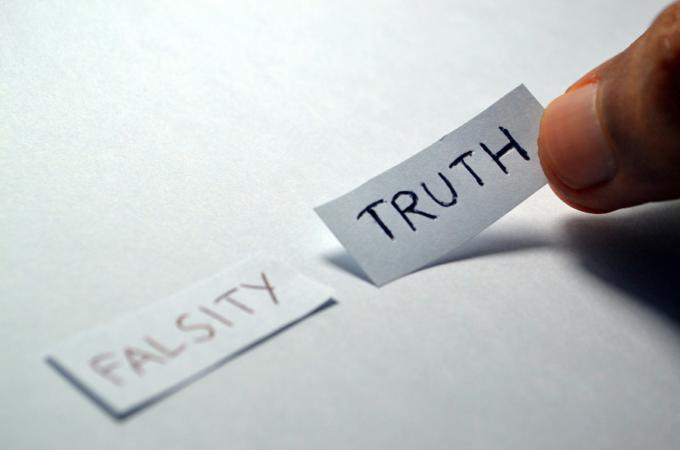Who you believe
Whatever side of the he-said-she-said divide you're on, or whichever side ultimately prevails, the last few weeks of political theater prove one thing: what we believe most often depends on who we believe. Once we've decided to trust someone, we are likely to believe that whatever they tell us is true. Even if it isn't.
In human society credibility is power, and that power can be used for good or ill. Exhibit A: Hitler. The German people didn't embrace Nazi genocide overnight; they were led to it by a man they trusted. The problem is that he was a man they should not have trusted. But that was revealed only after several years and millions of dead bodies.
Truth does not always carry the day. Sometimes, we find it easy to believe a lie because the person telling it makes it easy. We believe them, maybe because they are like us in some way, maybe because they inspire us to greatness or give us hope, maybe because they say what we want to hear, or what we ourselves are afraid to say. They are credible witnesses who deliver convincing testimony.
So here's my question: what would it take for us to believe the truth of what God has revealed in Christ Jesus? And more, what would make us credible and convincing witnesses to that truth?
For me to believe what someone says about God, I have to trust the person who is saying it. Yes, it needs to make rational sense. Yes, it needs to be beautiful. But more than anything else, the person saying it must come across as utterly convinced, completely sold-out, to what he or she is saying. A witness is compelling only when he is certain. As the writer of Hebrews put it, "Faith is the assurance of things hoped for, the conviction of things not seen" (Heb. 11:1). Still, faith can be seen. It is visible in how believers live; in what they do and don't. Lives speak far more eloquently than lips.
It's time we start to consider the possibility that the world doesn't believe our message because it doesn't believe us. We may come out swinging or be all sugar and sweetness, but too many of us would lose a no-confidence vote. We just aren't convincing. Why? There is something lost in translation. We're cloudy when it comes to the facts that count. We find ways to avoid answering the questions we are asked. We say one thing, but wink and nod and do another. The Gospel of Jesus Christ is strong, but our testimony is weak.
Our faith is due to a chain of witness that reaches all the way back to the very first reports of the empty tomb. Mary Magdalene, the first Apostles, the very first converts to Christian faith -- their testimony was compelling and clear -- clear enough to change lives, enough to shape 2,000 years of history. Their message was believed because they were believable. It was believable because they staked their whole lives on what they themselves believed, even risking persecution and death.
Make no mistake: if you are baptized, you are a witness to salvation in Christ. Jesus said, "You will be my witnesses" (Acts 1:8). He didn't ask, "Will you be my witnesses?" The question is what kind of witnesses we are, or will be. That is of critical importance to our world, because in the end, there isn't any ironclad "proof" of God, just witnesses. The most compelling evidence of God is you and me.
- Jaymie Stuart Wolfe is a Catholic convert, wife, and mother of eight. Inspired by the spirituality of St. Francis de Sales, she is an author, speaker, and musician, and serves as a senior editor at Ave Maria Press. Find Jaymie on Facebook or follow her on Twitter @YouFeedThem.



















